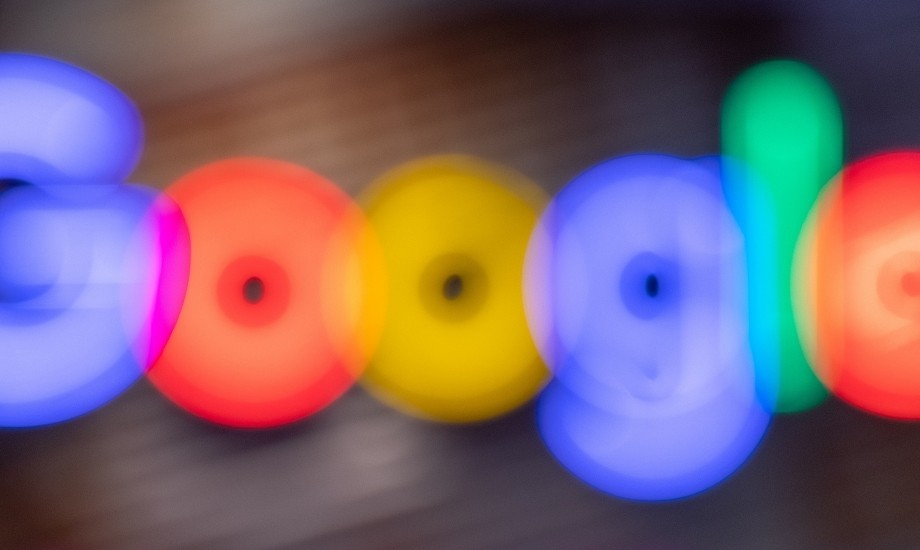With 49% of product searches starting on Google, and the average Google search lasting only a minute, it's crucial your business's product or service appear at the top of a search engine result page (SERP) when a user is searching for it. You can’t really rely solely on organic SEO, especially when other businesses are paying to ensure their products appear above your ads. If this is the case for your business, it's critical to invest in an SEM strategy.
Previously, we introduced you to the basics and benefits of Search Engine Marketing (SEM). If you have not read it, check out "What is Search Engine Marketing (SEM)? Why It's Important For Business?". In this article, we will explain the basic mechanics of SEM and how to successfully execute a well-thought-out plan.

How Search Engine Marketing Works
Search Engine Marketing is also known as pay-per-click (PPC) marketing. However, paid advertising on Google isn’t as simple as saying, “I want to pay X for every click.” SEM revolves around the keyword auction process.
Search engine marketers bid on specific keywords to have their ads show up when potential customers search for those keywords on Google. Unfortunately that in your industry alone, for example, you’re not the only business out there that wants clicks from people searching for what you’re selling. To make sure that your ads are seen, you have to outbid the competition.
The Keyword Auction Process
The keyword auction process is more or less like any other auction you’re familiar with. Basically, you pick the keywords on which you want to run ads and enter the maximum amount you are willing to pay for a click. That maximum amount is your “bid” for that keyword.
When someone searches for queries that include one of your target keywords, The search engine compares all of the bids on that keyword and decides what order ads are displayed to users depending on their maximum bid AND the quality of their ads.
Google also takes the relevance and quality of your ads into account when deciding where your ad will rank. They also take into account how well your ads and landing page match the intent of a search. So, if you manage to create high-quality ads, you can potentially rank higher than your competitors and pay less per click as well!
After your ads have been placed on their rank according to these factors, it’s up to your ad to catch a potential customer’s attention and convince them to click.
Quality Score
Google Ads as a platform needs its users to trust their search engine to guide them to relevant content. When it comes to PPC advertising, Google has its neck on the line for the advertisers. If your ad gets a lot of traffic but your website fails to deliver, that violates users’ trust. However, to make money, Google needs marketers to pay for clicks, so they have to risk that some ads will disappoint the users.
To moderate this risk, search engines assign a quality score to your SEM ads. The purpose of the quality score is to encourage advertisers to manage user trust. High quality scores mean that your advertising fits the search engine’s rules and objectives, a low score means you are violating user trust.
Quality scores range from one to ten where ten is the best. When your keyword is up in the auction, the search engine adjusts your maximum bid based on your quality score. If your ad is good, the search engine offers you a lower cost-per-click. If your ad is bad, it punishes you to the point where you should remove or change the ad. But even if you leave the ad running, Google just charges you a higher cost for the low quality score to offset their risk of losing some user confidence.

How to Build a Solid Search Marketing Strategy
Developing a PPC Ad Plan
The first step to any successful search engine marketing campaign will always be to plan. Strategically documenting the process is essential to make sure everyone’s on the same page and that overall campaign progress can be measured.
Here are the basic steps you’ll need to cover in your SEM plan:
Defining goals
Assessing the competition
Selecting SEM platform
Researching keyword
Setting a budget
Writing the ad copy
Tracking and optimizing
SEM Platforms
An SEM platform is a search engine where a brand can place search ads that are displayed when users perform a search. The most common SEM platforms are Google and Bing.
Google Ads is the most widely used SEM platform. Billions of Google searches are performed a day, so it can help you get in front of the largest online audience.
Bing Ads claims to connect with 3 million searchers that Google can’t reach. By serving ads on partner sites such as Yahoo and MSN, Bing Ads help you connect with searchers who aren’t exclusively using Google for search.
SEM Keyword Research
Search marketers need to conduct keyword research to decide which keywords to use in their ads campaigns. We have discussed keyword research for SEO in this previous article, but the same principles apply to SEM.
First, list down some keywords that are relevant to your business and that prospective customers are likely to use when searching for your products and services. You can use one of many Keyword Research tools out there on the internet to make it easier to come up with some decent keywords.
Simply enter a keyword that’s relevant to your business or service, and see related keyword suggestion ideas that can form the basis of various search engine marketing campaigns.
Creating Search Ad Copy
Once you’ve selected the best keywords to target, the next step is to convince them into clicking on your ad. This is where you need a bit of persuasive skill, so it definitely pays to be a good copywriter.
Copy is the first thing a user sees when they’re exposed to a search ad, and first impressions are incredibly important for businesses because they can mean the difference between establishing a positive relationship and losing that visitor’s interest for good.
Always make sure your ad copy is relevant to the keyword you’re targeting. When people use search engines, they naturally filter out and ignore ads that aren’t relevant to them. They’ll do the same to you if your ad copy doesn’t match their search intent.
Optimizing Paid Search Campaigns
SEM campaign optimization efforts shouldn’t be restricted to any one point in time. Testing and optimizing is an ongoing process that needs to be addressed regularly so your strategies remain competitive.
There are several areas where optimization efforts can have very positive effects on your campaign. Things to pay attention to are:
Search ad account structure
Keyword list expansion
Negative keywords
Bidding strategies
Audience targeting strategies
Each of these aspects can always be further optimized, no matter how much you’ve improved your strategy in the past. The thing about SEM (and most other marketing strategies) is that it’s definitely not set and forget.
Account and Campaign Structure
In theory, you could group all of your keywords together in a single bucket and display one ad for the aggregate lot. But your budget would be eaten up by a handful of high-volume keywords, and your quality score would go down. That's why structuring your Google Ads account properly is so important.
There are several levels for Google Ads campaign organization:
Ad - The copy that's displayed for the keywords you've chosen.
Keywords - The queries you're bidding on.
Ad Group - Sets of like keywords grouped by theme.
Campaign - Highest level for managing ad groups.
At each level, you'll be able to determine what's working and not working, making you more informed about the performance and how your money is being spent.
Measuring SEM Campaign Performance
Like any other marketing function, SEM is built on the fundamental cycle of Plan, Execute, Review, and Optimize. Campaign tracking is absolutely crucial for any PPC effort because of how easy it is to start throwing money down the drain. Really, really quickly.
CTR (Click-through-rate)
Conversion Rate
CPA (Cost-Per-Action)
Quality Score
How to effectively track your campaign’s performance depends on your overall goal. Once you’ve defined that, it trickles down to what strategies you should be choosing and what metrics to keep an eye on. They’ll most likely include the following:

Frequently Asked Questions
What is SEM vs SEO?
The main difference between the two is that SEM drives traffic through paid advertisements, while SEO drives, monitors, and analyzes organic (unpaid) traffic. SEO is often considered the better marketing approach for long-term results. It's possible to get free traffic and take advantage of SEO. Whereas SEM only works when you pay.
Is SEO better than SEM?
SEM offers more immediate results than SEO since you can create advertising campaigns almost instantly and start getting targeted traffic. While SEO more likely will give you good rankings and traffic if you are willing to wait a long time.
What are the most popular Search Engine Marketing Platforms?
The most popular platform to do SEM is Google Ads, while Bing Ads and Yahoo Search Ads are other ones available to use. Facebook Ads and other social media ad platforms, for example, are pay-per-click platforms that do not fall under the SEM category.
What does PPC mean?
A pay-per-click (PPC) model is online advertising in which an advertiser pays a platform every time an advertisement link is clicked on. It's known as the cost-per-click (CPC) model. The pay-per-click model is offered primarily by search engines and social media platforms.
Is Google Ads PPC?
Google Ads is Google's pay-per-click (PPC) advertising solution. Businesses and website owners can bid on the chance to show their ads next to searches on Google.com, right when people are looking for what they have to offer
Is Google Ads free?
Signing up for an account is free. You won't pay until your customers take action, like when they click on your ad to go to your website.
Need Help Planning Search Engine Marketing Strategy for your brand?
Does your brand need help with Search Engine Marketing? Sphere Agency is here to help you gain traffic to your brand website and grow your business with strategic SEM plans. Check out our Google Ads Services for more information and contact us today.





